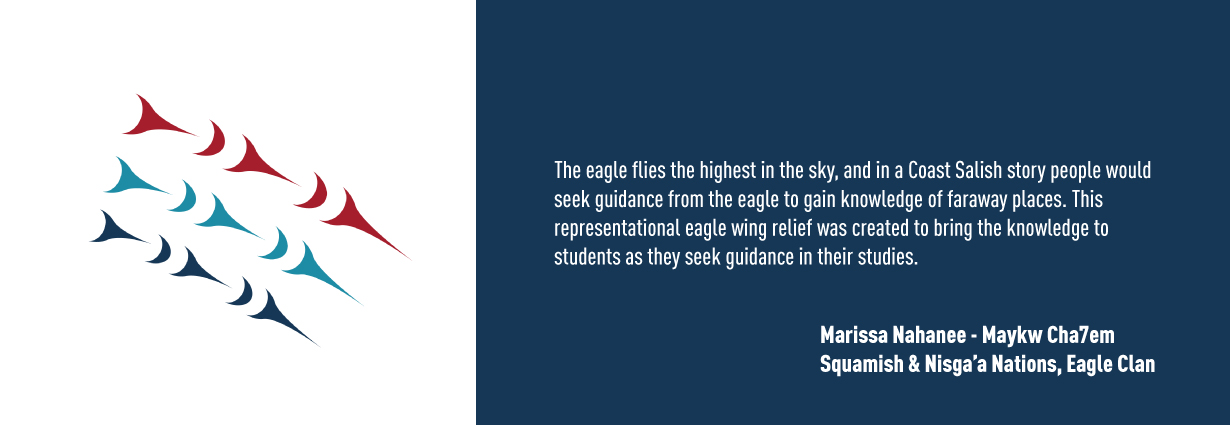
Contact Ashley Edwards, Indigenous Initiatives and Instruction Librarian, with any questions.
Taanishi, ey swayel, waytk, yawc̓, nú, hello.
Welcome to the Indigenous Curriculum Resource Centre (ICRC).
The ICRC collects books, articles, websites, and audio-visual materials on Indigenizing curriculum and Indigenous pedagogy, in addition to post-secondary curriculum resources. These materials centre Indigenous approaches to teaching and learning, and support the work of Indigenizing and Decolonizing curriculum at SFU. The ICRC collection policy provides more information on what can be found in the Centre.
Background
In 2015, after seven years of interviews and research, the Truth and Reconciliation Commission released its final report, including 94 Calls to Action. While there is a strong theme of education throughout the document, only actions 10 and 62 specifically refer to curriculum at post secondary institutions.
Responding to the TRC, SFU’s Aboriginal Reconciliation Council released their own report, Walk this Path With Us, in 2017 (ARC report), which includes 34 Calls to Action for the SFU community.
In response to Calls to Action 12 and 21 of the ARC report, the Library is opening this centre to assist the SFU teaching community with Indigenizing and Decolonizing their curriculum.
What does it mean?
There are many definitions for Indigenization and Decolonization and there are often overlaps as the terms are interconnected. The ICRC uses the definitions in the ARC report to guide the work. Accordingly, Indigenization is “incorporating Indigenous knowledge and ways of knowing into the practices (such as curriculum) of the institution” (p. V), and Decolonization is “a socio-political agenda that seeks to redress historical and current practices that have had deleterious effects on Aboriginal peoples” (p. V). For a deeper discussion on these terms, see Gaudry and Lorenz (2018), Tuck and Yang (2012), and the Pulling Together series by BCcampus.
For post secondary institutions, Indigenizing curriculum can be a challenge (ARC report, 2017; MacDonald, 2016). This stems from universities being colonial institutions which assisted in the disruption Indigenous educational practices. Likewise, curriculum tends to rely on the “classics” of each discipline leaving little room or space for additional worldviews.
Adding Indigenous worldviews to curriculum can be difficult for those without a background in Indigenous topics. What is appropriate to include for each discipline? As MacDonald (2016) asks, should students in engineering have to learn about the fur trade? Maybe not, she writes, but they could be learning about “Indigenous land interests” in relation to professional practice and projects (2016).
Video: Q’um Q’um Xiiem (Dr. Jo-ann Archibald), Professor and the director of NITEP (Native Indian Teacher Education Program) at the Department of Educational Studies (EDST), as well as the associate dean for Indigenous Education at the Faculty of Education at UBC, talks about what 'Indigenizing the curriculum' means.
Prioritizing Western education ways and topics has for generations been the norm within Canadian educational systems, at all levels. Because of this, the idea and process of Indigenizing education, practices, and policies can be uncomfortable as we confront the hidden traumatic aspects of Canada’s history, and learn new ways of viewing the world.
Indigenizing curriculum is the process of incorporating Indigenous authors, stories, and knowledge into existing frameworks and curriculum in a respectful way. It’s about appreciating that there are multiple ways to learn about and understand the world, and valuing Indigenous ways of doing so.
Within education, Decolonization could be thought of as a movement away from prioritizing of Western-European knowledge. There have been similar movements over the past few years at universities on this topic (see: Rhodes must fall, and Why is my curriculum white?).
As public schools move towards Indigenizing their curriculum (see: BC’s New Curriculum: Indigenous Knowledge and Perspectives in K-12 Curriculum), post secondary institutions will increasingly host students who expect and are seeking out Indigenous content.
Note on terminology
On the ICRC webpages the term Indigenous is used to collectively mean First Nations, Métis, and Inuit. Exceptions are where authors use different terms, or using a term in a specific context such as the Indian Act.
For more information on Indigenous terminology and definitions, check out this Indigenous Studies research guide.
References
View/hide details
Additional readings
View/hide details

